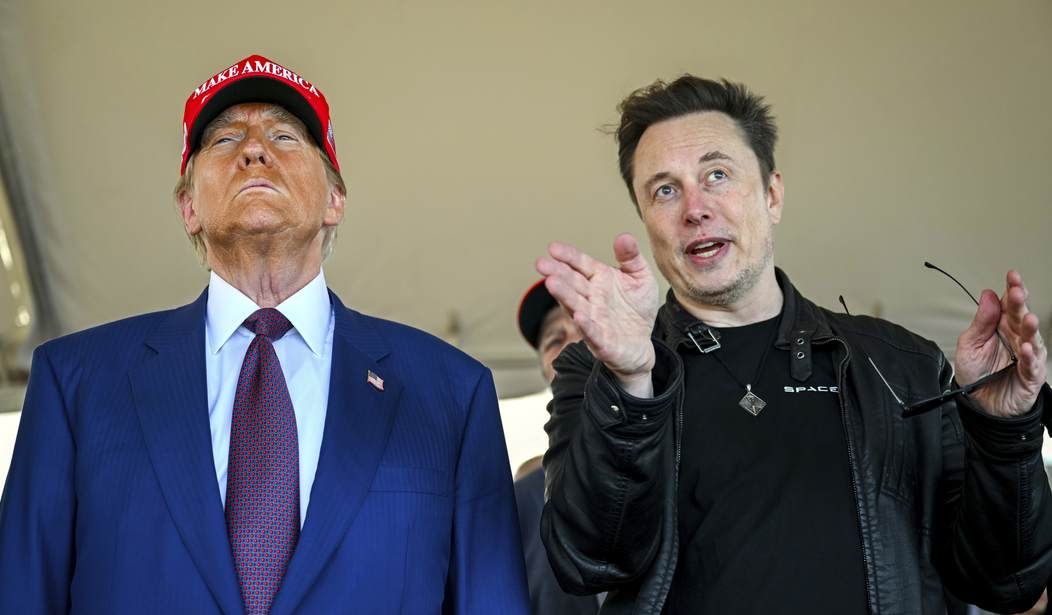The contrast between Donald Trump's cordial conversation with Barack Obama and Elon's wildman posts versus the UK Prime Minister Keir Starmer provides a clue into the incoming admin's governing strategy. It's a combination of a stable element and a disruptive cutting edge. One part provides reassurance while the other stirs the pot. People in other governments and even the mainstream media have subconsciously apprehended this duality.
Pundits now say, "The Trump admin says wild things but what really matters is what they do and it's not so scary." That's the Good-Cop-Bad-Cop or stable element/disruptive edge at work. Stable element: Donald Trump, JD Vance, Mike Johnson. Disruption league: Elon and Vivek as mad genius scientists.
One reason things seem so strange is that the optics of the political stage have radically changed from the carefully choreographed bonhomie that characterized the Global World with their G7, G20, UN, and Davos scripted photo ops to one of short, rapidly evolving exchanges on the Internet. Yet reality has not altered; there was chaos and conflict under those Arcadian smiles, but the public didn't see it. Now the public sees rather more than it is accustomed to. That makes it uncomfortable, especially among those requiring reassurance. Assurance has always been doled out in plenty. Coronations and Royal Parades of the past were not only about the spectacle but also served to convey to the public, by the display of familiar jewels and regalia, that nothing had changed and all was well.
But in times of rapid change, the comforting facade falls away to reveal stark, dissonant machinery. Joe Biden, in the last dying days of his administration, took the chance to tell the world that there's a hidden empire, a group of shadowy figures, a deep state that he only noticed just now while about to leave office. How did they escape notice for so long?
I want to warn the country of some things that give me great concern – and it will be up to the courts, Congress, the free press, and the American people to confront these powerful forces. ... Today, an oligarchy is taking shape in America – one of extreme wealth, power, and influence. Threatening our democracy and our basic rights and freedoms.
The outgoing president's remarks were widely interpreted as referring to billionaires like Elon Musk, Jeff Bezos, and Mark Zuckerberg who have been notably involved with or perceived to have switched to supporting the Democratic party's political enemies. If there were any doubt it was soon removed by Sen. Bernie Sanders during his examination of Treasury Secretary nominee Scott Bessent:
BERNIE SANDERS: "Are Elon Musk, Jeff Bezos, and Mark Zuckerberg too wealthy and powerful? Do you agree with President Biden about an oligarchy?"
SCOTT BESSENT: "Those three billionaires all made their money themselves. Mr. Musk came to the country as an immigrant. Jeff Bezos..."
SANDERS: "Forget how they made their money... Do you believe it's an oligarchy?"
BESSENT: "Well, I would note that President Biden gave the Presidential Medal of Freedom to two people who I think would qualify for his oligarchs."
Bessent's riposte to Sanders' was a telling one. It can be restated as: Biden didn't think these people were oligarchs while he thought they were supporters of the president's party. Musk, Bezos, and Zuckerberg were once all great guys when they were on the Democrat side. Only when they switched did they become black-hearted villains. Elon supported Barack Obama in the 2008 and 2012 elections and endorsed Hillary Clinton in 2016. Bezos singlehandedly kept the Washington Post afloat. Mark Zuckerberg, by his own admission, suppressed posts on Facebook, including those concerning Hunter Biden's laptop at the behest of President Biden. Trump was registered as a Democrat for much of his life and supported Democrats in the past, including contributing to Hillary Clinton's Senate campaigns.
Were these billionaires always "oligarchs" then? Or just now?
But perhaps the most revealing commentary on the subject came from California Gov. Gavin Newsom in late 2022, when he bitterly sought to remind Elon Musk who made him an "oligarch" to start with. "The way Gov. Gavin Newsom tells it these days, Tesla might not even exist if not for California's generous clean-air policies. Leaders of the Golden State have long sought credit for the success of the world's largest electric-car manufacturer. But Newsom took those claims to new heights in recent speeches, suggesting the state's incentives are responsible for the emergence of Tesla." Newsom's message to Musk is abundantly clear: I made you and your lousy car company. Now kneel, you ingrate.
But that was then, Gavin, and this is now. The trouble with America is that its extreme social mobility means that power relationships have to be adjusted — and readjusted — all the time. Half of S&P 500 companies will be replaced in the next decade. Companies that used to average 33 years at the top will find that dropping to 14 years. With a career spanning 36 years as a senator, eight years as vice president, and four years as president, Joe Biden as bureaucratic Mandarin has himself outlasted most corporate "oligarchs."
Chaos and conflict, alliance-building and perceived betrayal, the stable element and disruptive edge have always been there even in the heydey of the mainstream media. The drama of the Mandarins vs. the Oligarchs never stops. On Inauguration Day, America will have its version of a Royal Parade, not only to remind us that things are in a sense as they always have been, but that paradoxically and simultaneously, things have changed.










Join the conversation as a VIP Member